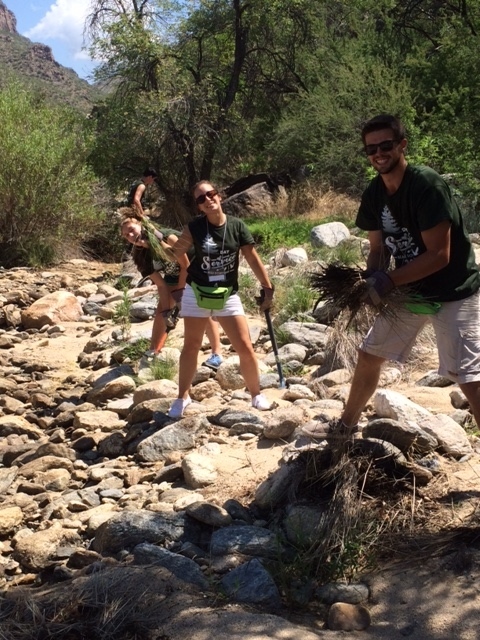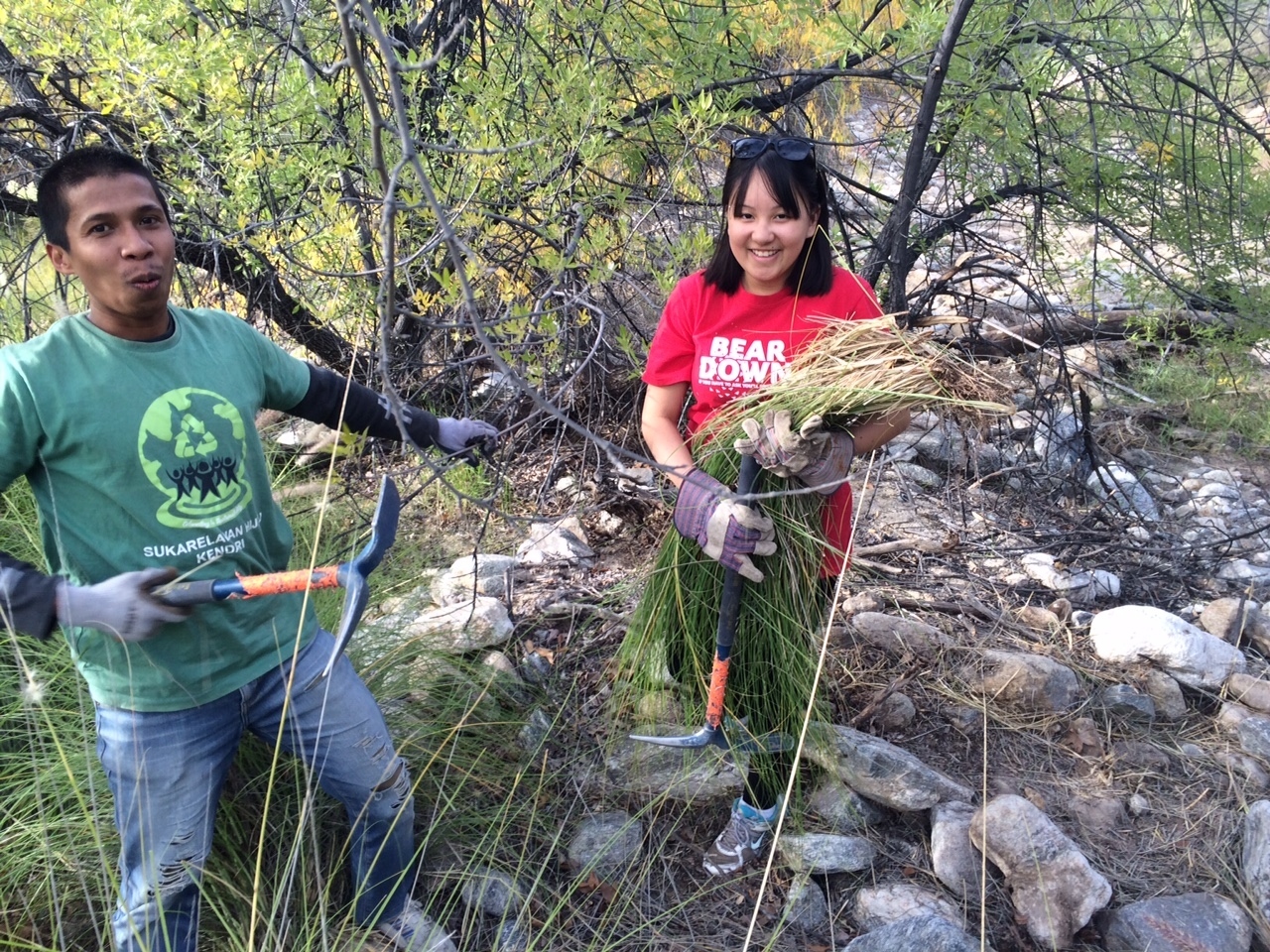The sound of rock bars and picks striking rock rings through the air as I grab a clump of fountain grass in my gloved hands and tear it, roots and all, from the sandy soil. I toss it into a growing pile of uprooted plants, pick up my rock bar, thrust it into the sand at the base of another nearby bunch of grass, and begin to pry the plant’s roots from the ground.
I’m working in Bear Canyon on the Coronado National Forest with a group of concerned citizens from many walks of life. Local students, professionals, and retirees have all come out on this day to fight back against the ever present threat of invasive species.


Bear Canyon is a beautiful riparian creek surrounded by Sonoran Desert in the Santa Catalina Mountains just north of Tucson, Arizona. One of the most popular destinations within the Coronado National Forest, Bear Canyon is also under serious threat from invasive grass species. These grasses have been rapidly invading the desert and riparian communities in the region, where they choke out native species and bring catastrophic fire into otherwise rarely burned ecosystems. The combined effects of this invasion lead to a shift in the biotic community which offers fewer resources for native plants and animals and a lower level of biodiversity over-all.
But perhaps the real story of this project is one of collaboration: This work has been made possible thanks to the National Forest Foundation’s Matching Awards Program and a partnership with the Coronado National Forest. But it has also taken a broad network of people and organizations to make this work happen. Through our relationships with numerous University of Arizona clubs and programs, we have exposed more than 100 of tomorrow’s leaders to the beauty, diversity and importance of our local National Forest Lands. In addition, we have ensured that they learn a bit about the value of our naturally functioning ecosystems and of service to the greater community.
We have also installed hundreds of native shrubs, forbs, and grasses in the areas we have cleared in order to provide more resources for native pollinator species and other animals. We are working with three different local nurseries, and many of the plants have been grown from seed collected right in the canyon.
Click here to learn more about Sky Island Alliance.

